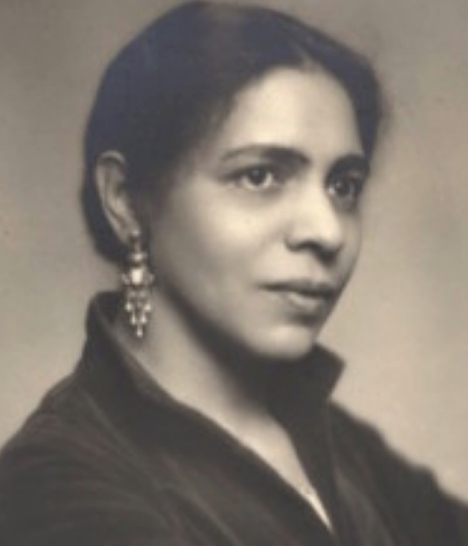On this date in 1891, Nellallitea “Nella” Larsen (née Walker), who became a well-known Harlem Renaissance writer, was born in Chicago to Mary Hanson from Denmark and Peter Walker from the Danish West Indies. Two years later, Walker disappeared from their lives. Nella took her stepfather’s surname after her mother remarried.
She grew up in Chicago, studied in 1907-08 at Fisk University in Nashville, Tenn., audited classes in Denmark and moved to New York City, where she trained as a nurse. She worked for a year as superintendent of nurses at Tuskegee Institute, then returned to New York in 1916 and married Elmer Samuel Imes, a physicist. By 1920 she had given up nursing and was starting to write. She became a library assistant at a branch of the New York Public Library, now the Schomburg Center for Research in Black Culture.
Her first book, a 1928 novel titled Quicksand, has a young protagonist with resemblances to Larsen, who pointedly disdains the religion she encounters at a fictional Black school. But after seeking refuge and a sense of community in a randomly attended church one night, she is swept up in the emotion of the service and is escorted home afterward by the charismatic preacher, whom she impulsively decides to marry. She moves with him to Alabama, where she is miserable and asks herself, “How could she, how could anyone, have been so deluded.”
Her 1929 novel Passing is about two light-skinned women who take divergent paths. A film adaptation debuted to great acclaim at the 2021 Sundance Film Festival. The film, directed by actress Rebecca Hall, stars Tessa Thompson and Ruth Negga in the title roles.
In 1933, Larsen became the first Black woman to receive a Guggenheim Fellowship, yet never published again. She divorced her husband in 1933 and from 1941 to her death of a heart attack at age 72 worked as a nurse and nursing administrator in a Brooklyn hospital. (D. 1964)


